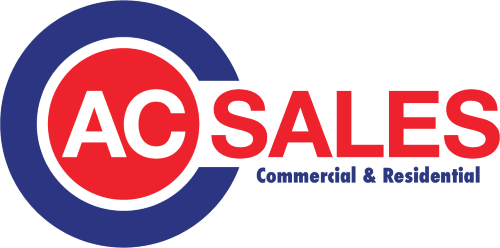
We spend a lot of time indoors. As a matter of fact, the Environmental Protection Agency (EPA) has approximated being within a building comprises 90% of our time. Although, the EPA also has determined your indoor air can be three to five times more polluted than outdoors.
That’s since our residences are securely sealed to boost energy efficiency. While this is great for your utility expenses, it’s not so great if you’re a part of the 40% of the population with respiratory allergies.
When outdoors ventilation is limited, pollutants including dust and volatile organic compounds (VOCs) could get trapped. As a consequence, these pollutants could irritate your allergies.
You can enhance your indoor air quality with fresh air and usual dusting and vacuuming. But if you’re still having issues with symptoms during the time you’re at home, an air purifier might be able to provide relief.
While it can’t eliminate pollutants that have gotten trapped in your furniture or flooring, it could help freshen the air traveling throughout your home.
And air purification has also been scientifically proven to help lessen some allergic symptoms, according to the American College of Allergy, Asthma and Immunology. It might also be appropriate if you or someone in your household has lung trouble, like emphysema or COPD.
There are two models, a portable air purifier or a whole-home air purifier. We’ll go over the distinctions so you can determine what’s correct for your house.
Whole-House Air Purifier vs. Portable Air Purifiers
A portable air purifier is for a single room. A whole-house air purifier works alongside your HVAC equipment to purify your full house. Some models can work by themselves when your heating and cooling system isn’t operating.
What’s the Best Air Purifier for Allergies?
Go after a model with a High Efficiency Particulate Air (HEPA) filter. HEPA filters are installed in hospitals and provide the best filtration you can buy, as they catch 99.97% of particles in the air.
HEPA filters are even more powerful when combined with an ultraviolet (UV) germicidal light. This dynamic mixture can eliminate dust, dander, pollen and mold, all of which are general allergens. For the ultimate in air purification, consider a unit that also has a carbon-based filter to decrease household smells.
Avoid buying an air purifier that makes ozone, which is the primary component in smog. The EPA warns ozone might worsen respiratory problems, even when released at small settings.
The Allergy and Asthma Foundation of America has compiled a listing of questions to consider when buying an air purifier.
- What can this purifier remove from the air? What doesn’t it remove?
- What’s its clean air delivery rate? (A bigger number means air will be cleaned faster.)
- How frequently does the filter or UV bulb need to be switched]? Can I complete that by myself?
- How much do replacement filters or bulbs cost?
How to Lessen Seasonal Allergy Symptoms
Want to have the {top|most excellent|best] results from your new air purification equipment? The Mayo Clinic advises completing other steps to reduce your exposure to things that can trigger seasonal allergies.
- Stay inside and keep windows and doors closed when pollen counts are high.
- Have other family members cut the lawn or pull weeds, since these jobs can trigger symptoms. If you must do this work on your own, consider wearing a pollen mask. You should also bathe immediately and change your clothes once you’re done.
- Avoid stringing up laundry outside your home.
- Run your air conditioner while at your house or while you’re on the road. Consider using a high efficiency air filter in your home’s heating and cooling unit.
- Even out your house’s humidity percentage with a whole-house dehumidifier.
- Hardwood, tile or linoleum are the best flooring materials for decreasing indoor allergens. If your residence has carpet, add a HEPA filter on your vacuum cleaner.
Let Our Professionals Manage Your Indoor Air Quality Requirements
Want to progress with getting a whole-house air purifier? Give our specialists a call at (337) 234-2345 or contact us online to request an appointment. We’ll help you choose the right unit for your house and budget.
 Skip to content
Skip to content
